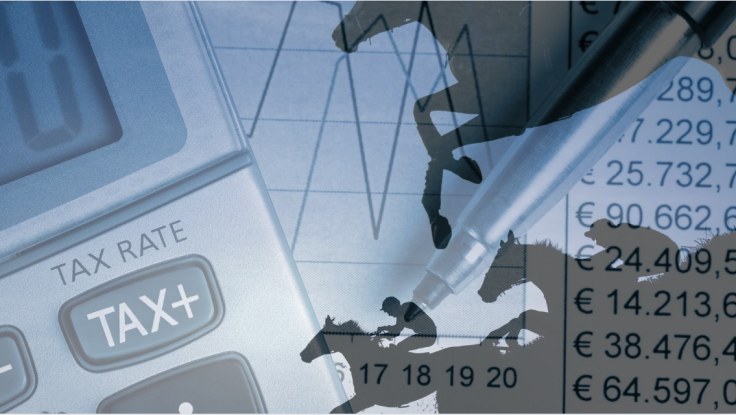Flat Gambling Tax in UK a Blow to Racing and Betting Jobs?
Flat-rate betting tax could cost racing £160M and thousands of rural jobs, industry warns

The UK government's proposed introduction of a flat tax on remote gambling is causing quite a furore, especially among the horse racing fraternity. The policy, known as the Remote Betting and Gaming Duty (RBGD), is intended to harmonise three separate duties that at present exist: General Betting Duty, Pool Betting Duty, and Remote Gaming Duty.
At first sight, the reform is a prudent step towards simplifying an outdated tax regime. But dig deeper, and you'll find a wave of concern from those who depend on the current model, not least among them, Britain's vibrant horseracing and betting sectors.
A Simpler System with Complex Consequences
The proposal is for a uniform rate of 21% to 30% to replace differential rates across different branches of off-site gambling. That's pretty reasonable and deregulatory, or so claim industry players, who argue it simplifies significant nuances.
They also point to the growing prominence of betting sign up offers as evidence of a competitive and evolving market. Not quite, respond some, as wagering on horse racing is not quite the same as spinning a virtual wheel of roulette; the latter could thus disproportionately draw the higher rate.
Under the present system, racing levies are garnered at sub-average rates relative to the type of bet placed, on fixed-odds sportsbetting 15%, on spread bets 10% etc. They are not random rates; they exist because British racing is deeply entwined with the betting market.
If that tax were not taken in, most in racing fear they'll be facing economic uncertainty. It has been warned about by the British Horseracing Authority, rural campaign groups, and unions as an 'existential threat' to a centuries-old national tradition.
How the Numbers Stack Up
From bookmakers to breeders, the trickle-down impacts could be enormous. The BHA surmises that, even at the lower end of the flat tax—21%—bookmakers would pay an extra £40 to £66 million ($53.2 to $88 million) every year just on online racing bets.
That shortfall could wipe out up to £66 million ($88 million) in financing that the game depends on. At a 30% rate, that loss expands to between £90 and £160 million ($119.9 and $213 million) yearly. Also, those aren't simply numbers; they reflect real effects on trainers, stable staff, jockeys, and others whose livelihoods depend on the game.
This links directly to the common bettor as well because when taxation increases, so do expenses, which will be pushed on the consumer. The odds may no longer remain as competitive—and perhaps not for as long—while operators could scale back the promotions or bonuses that punters have come to expect. Such popular incentives as betting sign-up offers might prove even more limited once operators have adjusted their books for slimmer margins.
Jobs, Communities, and Racing Towns at Risk
Not only will racing be put on the line, but betting shops, casinos, and online platforms will contribute £4.5 billion ($5.9 billion) in tax revenue into the country's coffers each year and support about 119,000 jobs in the United Kingdom.
Should a new flat tax eat into operator profitability, that number could be drastically reduced. Over 2,700 jobs in racing alone could disappear within a year of implementing such a policy, mainly from rural towns like Cheltenham, Doncaster, and Newmarket, where racing is not just a sport but an integral part of the community's beating heart.
There is also a cultural aspect. Horse racing, for many, forms part of the British traditional image; it is not only viewed at large as an entertainment industry but rather one tied with the land, traditions, and local economies.
That explains why various political and social groups urge the government to reconsider classifying all gambling activities under one heading, especially when a significant portion of it contributes toward rural employment, heritage preservation, and economic sustainability .
A Tax That Misses the Mark?
Yet, there's another side to the coin. The government argues that the current multi-tax structure is outdated, especially in a digital world where the lines between gaming and betting are increasingly blurred. Why should online poker be taxed differently from a horse race when both happen through the same screen?
That question, like many in this debate, doesn't have a straightforward answer. Simplification is appealing in theory, but nuance is necessary in practice. Racing may be on a similar digital platform as online gaming, but its structure, impact, and reliance on betting revenue set it apart in significant ways.
So, to put it all together
The proposed flat gambling tax in the UK isn't just a policy tweak, it's a seismic shift with ripple effects far beyond government spreadsheets. It's a clash between modernization and tradition, efficiency and equity.
While the goal of tax reform may be simplification, it risks flattening an ecosystem that thrives on balance and distinction. Whether the government will take these concerns to heart remains to be seen, but one thing is clear: for many in racing and betting, this isn't just a tax issue. It's about the future of a cultural institution.
© Copyright IBTimes 2025. All rights reserved.





















